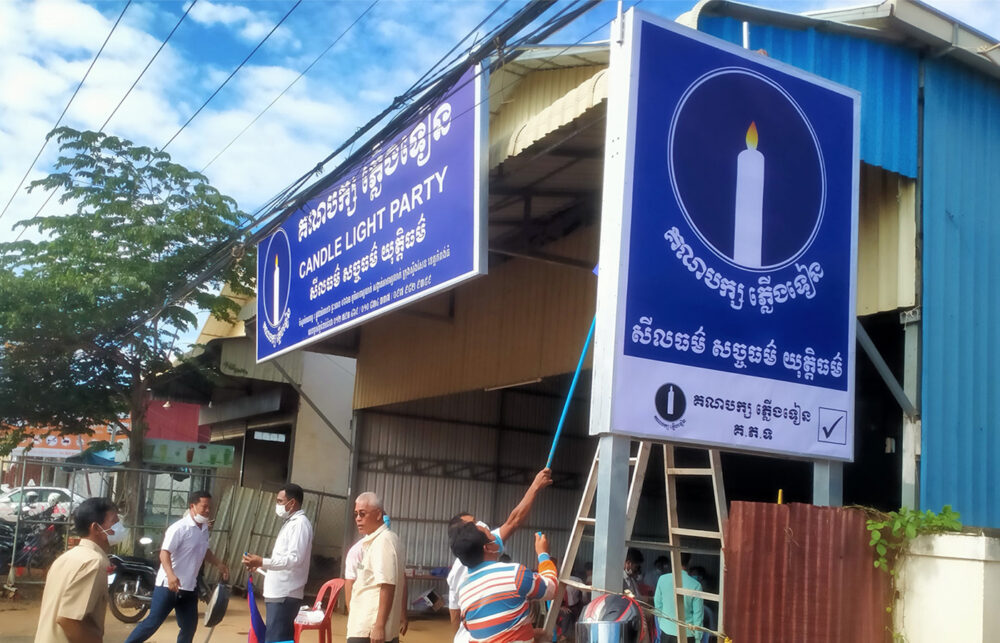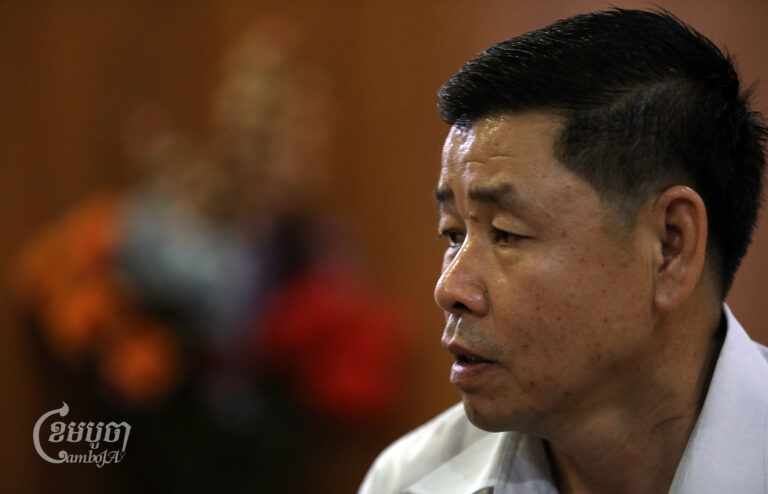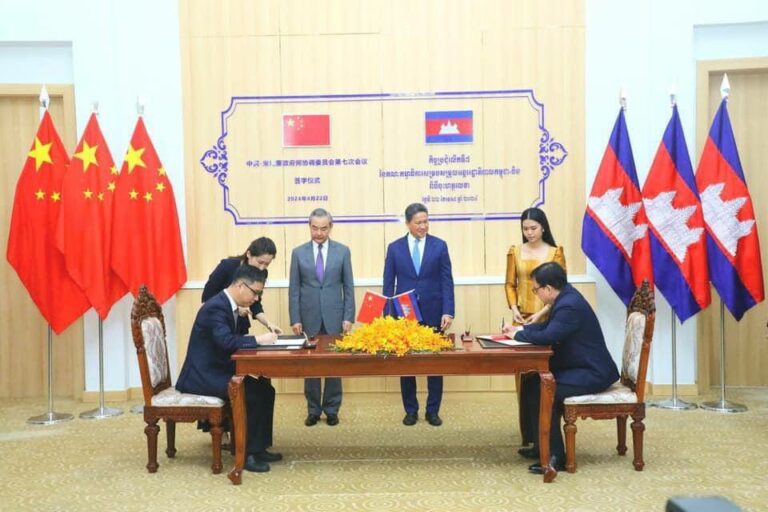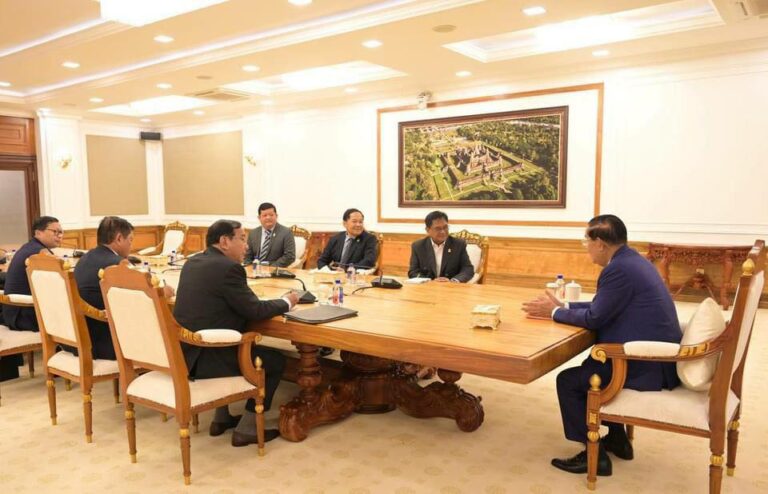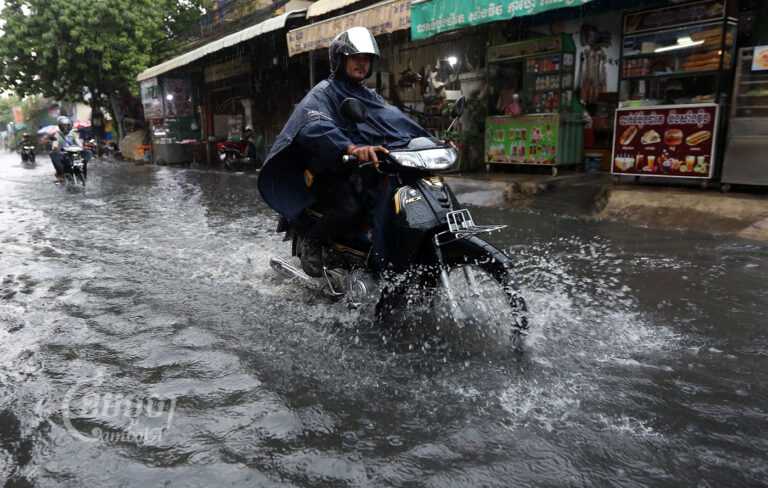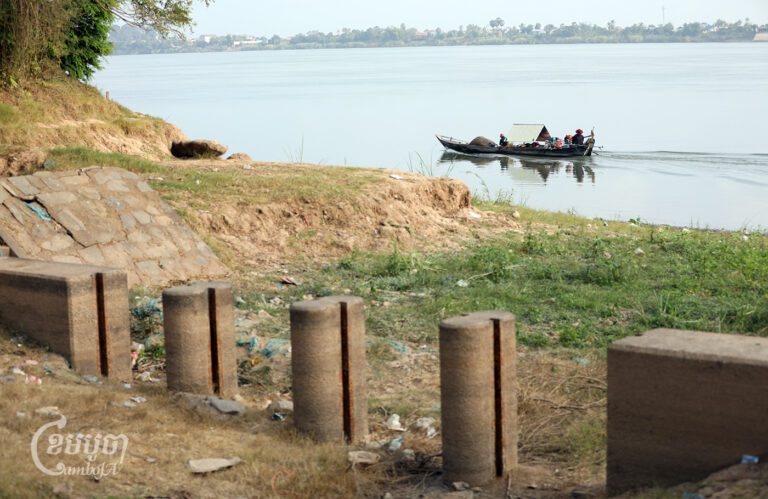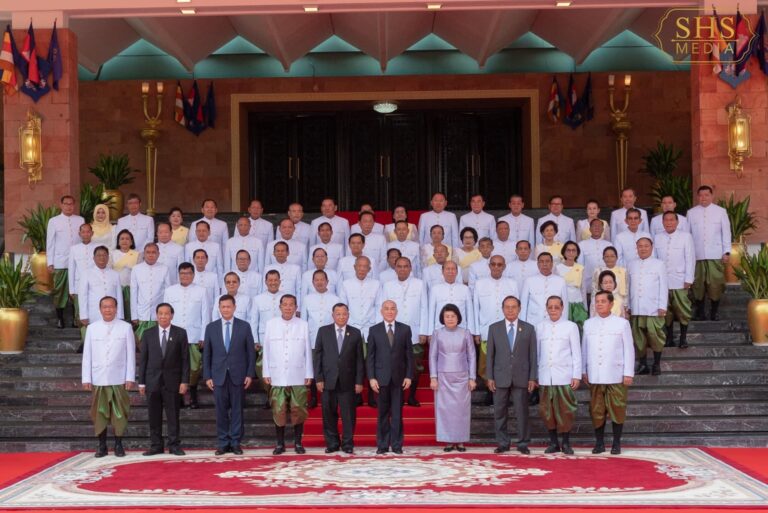Prime Minister Hun Sen on Thursday threatened to sue the opposition Candlelight party after its leaders accused the ruling CPP of political persecution in the run-up to the July 23 national elections.
Following the arrest of Candlelight co-vice president Thach Setha on Monday, Candlelight issued a statement Wednesday claiming the CPP was targeting its operations.
“[We] are strongly opposed to all forms of political harassment, intimidation and persecution by the ruling party and demand these actions stop immediately,” the statement read.
Candlelight called on signatory countries of the 1991 Paris Peace Agreements to fulfill their obligations to respect human rights and uphold a multi-party democracy.
Hun Sen rejected the statement and requested the CPP’s lawyer review the grounds for a lawsuit against Candlelight during a speech at a Phnom Penh hospital Thursday. Earlier this month, he had warned criticism of the CPP would be met with legal action or violence and pledged to destroy so-called extremist groups.
“You cannot issue a statement saying that CPP is threatening and intimidating you,” Hun Sen said Thursday. “I asked the CPP’s lawyers to look at the statement.”
“Where and when is the CPP threatening you?” he said, addressing Candlelight. “If you do not withdraw the statement or apologize, you will be sued again.”
Along with Setha’s imprisonment in pretrial detention for allegedly issuing a bad check in 2019, Candlelight co-vice president Son Chhay and top advisor Kong Korm were each sued by the CPP and face property seizure to repay damages.
Korm was sued by the CPP earlier this month for incitement after appearing to imply the CPP was created and supported by foreign powers.
Chhay had claimed the electoral process in the 2022 commune elections was biased in favor of the CPP, leading an appeals court to award the CPP $1 million in damages for defamation.
But Chhay played down Hun Sen’s threat to sue Candlelight for its Wednesday statement, saying Candlelight leadership was engaged in talks with the CPP to ease the tension.
Chhay said in a Tuesday press conference that the 2023 election is an important opportunity for Cambodia to restore its image following the court-ordered dissolution of leading opposition party CNRP in 2017 and the CPP’s subsequent sweep of the 2018 national elections. Chhay said Candlelight would consider boycotting the 2023 elections if the political situation did not improve.
“We are carefully considering and we will not decide based on emotion,” Chhay said. “That is why we continue to negotiate with the ruling party to find a way for a solution. But if it falls into a worse situation and we can do nothing, then there must be a clear decision.”
Yet Chhay would not say if he thought the legal action against Candlelight’s leaders was a CPP effort to stifle competition in the upcoming elections.
“Let the public judge, but we understand that this has made it difficult for us to work because the leadership has played a very important role in strengthening the party,” Chhay said.

Cambodia Reform Party founder Ou Chanrath said the legal measures taken against Candlelight leaders in the pre-election period could be seen as acts of political oppression.
“I am concerned about democratic progress in Cambodia and these politically motivated actions putting pressure on the opposition, especially the Candlelight Party,” he said. “It seems that the ruling party is using such measures to reduce the influence of a rival.”
Seng Sary, a political analyst who moved to Australia after facing threats from Hun Sen, said the legal actions against Candlelight leaders would allow for an easier transition for the CPP’s next generation of leaders, especially the Prime Minister’s son Hun Manet.
In December 2021, the CPP had endorsed Manet as the sole candidate to succeed his father, and he is expected to be listed on the 2028 ballot.
“It is simply a strategy to kick influential opposition politicians out of political competition because he may know that his son [Hun Manet] will not be able to compete with old generation politicians,” Sary said. “So what Hun Sen is currently doing is part of a strategy to hand over power to his son smoothly.”
Pa Chanroeun, president of the Cambodian Institute for Democracy, said the accusations against Candlelight leaders were clearly political persecution.
“This persecution will affect the election process and its results,” he said, adding that Candlelight had emerged as the leading opposition party and therefore the greatest threat to continued CPP dominance.
He said the tactics indicated a rise in authoritarian rule and warned it poisoned the political system by creating a “culture of revenge.”
CPP spokesperson Sok Eysan called on civil society organizations (CSOs) to avoid bias and added the government would not bow to international pressure.
“No matter what the ruling party does legally, they [political analysts and CSOs] will say it is wrong, so it is normal, and we should not believe those groups because what they are saying is not right,” Eysan said. “We comply with Cambodian laws, not foreign laws.”
He added there was “nothing to worry about” regarding further sanctions from the European Union or the United States, such as the removal of the preferential tariff system.
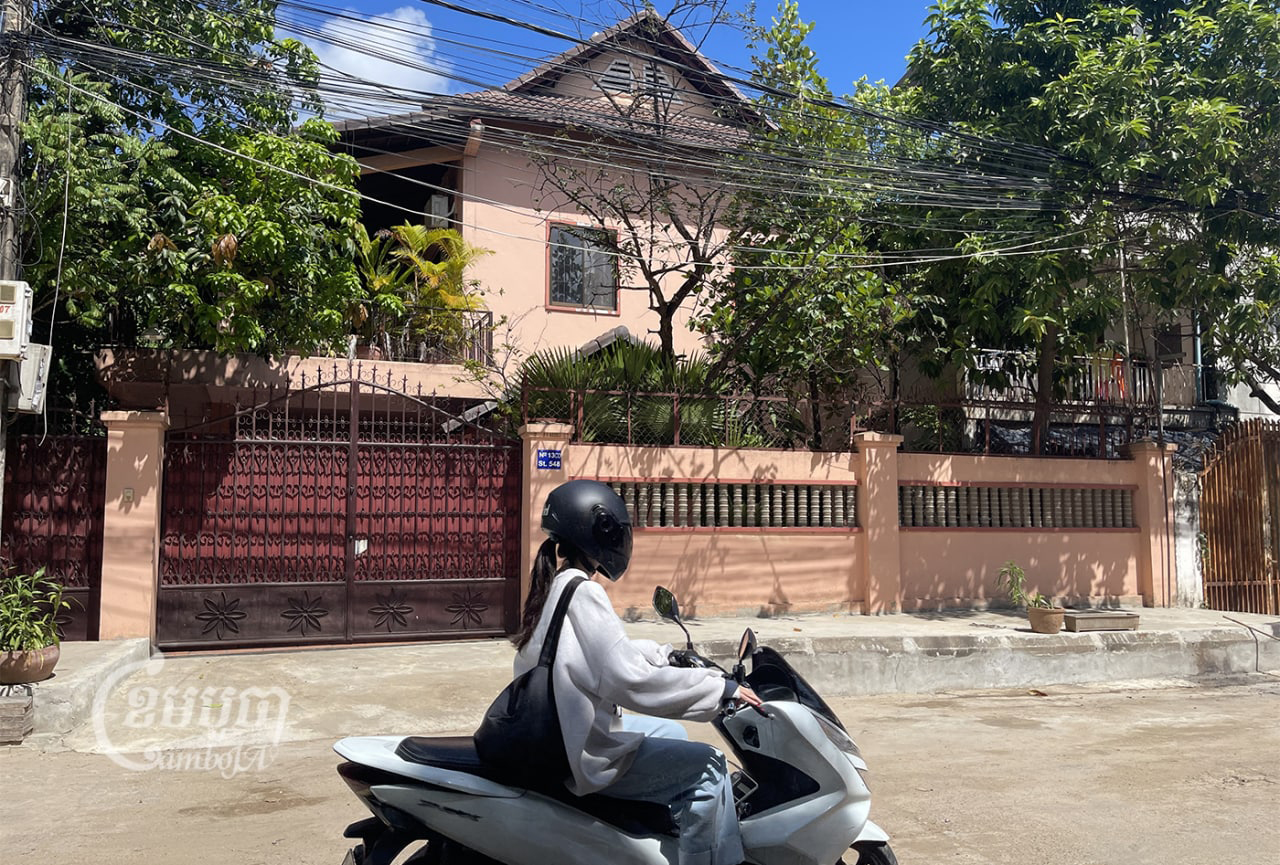
The EU partially withdrew 20% of Cambodia’s duty-free quota-free access to the EU market in August 2020 due to serious and systematic concerns related to human rights following the CNRP’s 2017 dissolution.
Hun Sen and two top ruling party officials also previously brought a defamation case against CNRP co-founder Sam Rainsy which led to the seizure of Rainsy’s Phnom Penh house, which had doubled as the CNRP’s headquarters. The house was sold by the CPP for $1.6 million to repay court-awarded damages.
Korn Savang, a coordinator for the election monitoring group Committee for Free and Fair Elections in Cambodia, said the judicial system’s actions would prevent an equal play field for all political parties in the elections.
“I do not oppose the implementation of the law, but we see that measures are being taken in the run-up to the election, especially on leaders and political activists, which is a concern,” he said. “An election process that takes place with threat and fear does not reflect fair participation.”
Additional reporting by Phon Sotthyroth


